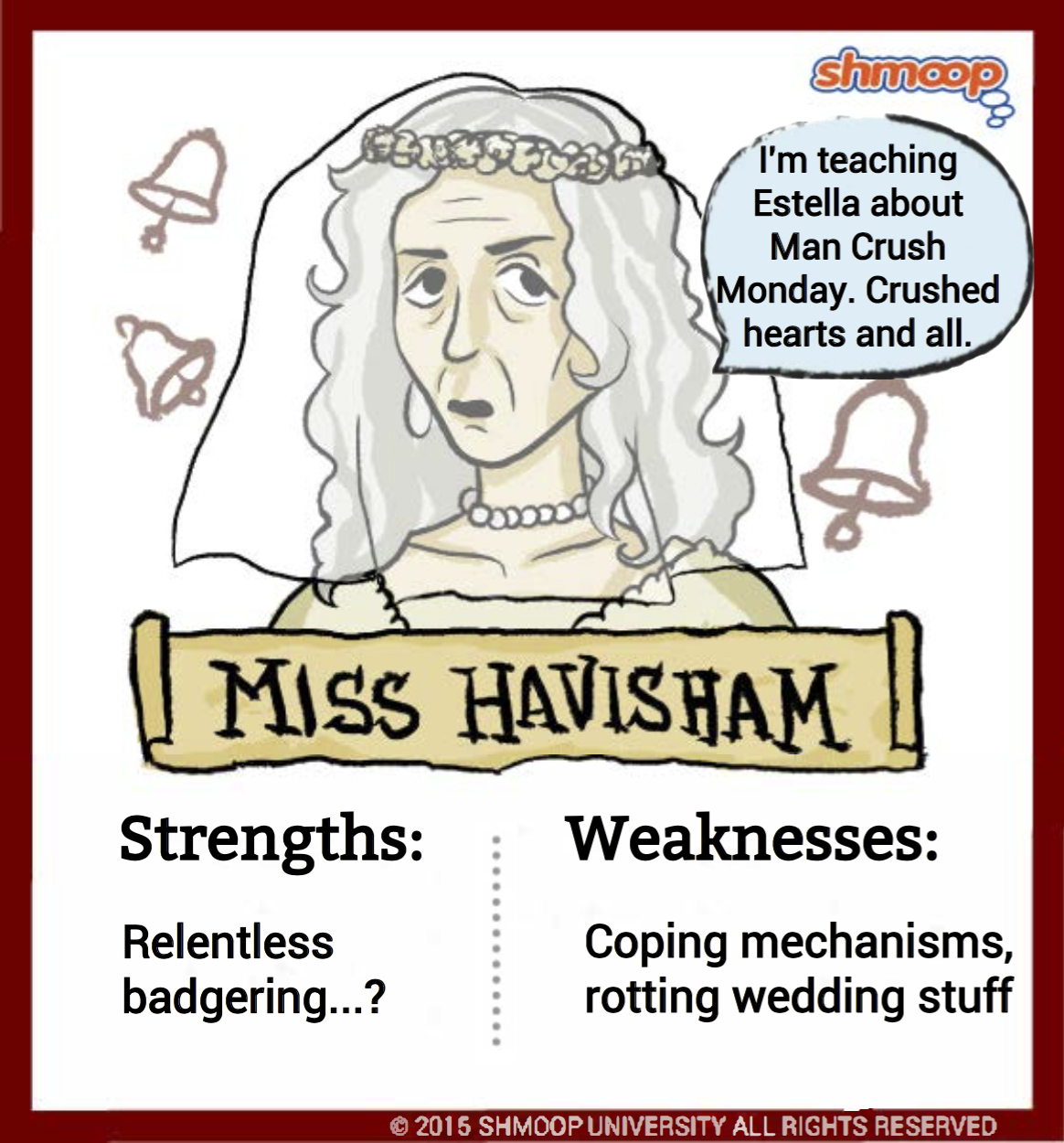Character Analysis

(Click the character infographic to download.)
Pip's great expectations are ruined, and he becomes a better man. Miss Havisham's expectations are ruined, and she becomes an "immensely rich and grim lady" who refuses to take off her decaying, tattered wedding gown (7.80)—or to hire a cleaning service.
Talk about coping problems.
Here's Miss Havisham's story, according to Herbert Pocket: she was the spoiled only child of a rich country gentleman brewer, until her dad married a cook (how déclassé) and had another child, a son, who for some reason decided he hated Miss Havisham and conspired with a conman named Compeyson to steal her fortune and then leave her at the altar on her wedding day.
Whew. Long sentence.
Anyway, the point is that Miss Havisham loses her fortune and her boyfriend/ fiancé—and she decides to take it out on the entire male sex. Which makes sense. (Not.) So, she adopts a little girl and raises her for one purpose: breaking hearts, starting with Pip.
Miss Havisham constantly needles Pip, making him play with Estella even when Estella obviously hates him and then, when Pip is growing up, eagerly telling him that she's "educating for a lady; far out of reach; prettier than ever; admired by all who see her. Do you feel that you have lost her?" (15.69). And when Pip is finally all grown up, Miss Havisham really goes nuts on him:
Love her, love her, love her! If she favours you, love her. If she wounds you, love her. If she tears your heart to pieces—and as it gets older and stronger, it will tear deeper—love her, love her, love her! (29.85)
Okay, so, obviously Miss Havisham is a little (or a lot) crazy. But why is she so obsessed with making sure that Pip loves Estella? Is it just to break his heart, and, if so, why? Pip can't quite understand. Being Pip, he chooses to think the best, saying that he's pretty sure she didn't "reflect[...] on the gravity of what she did" (44.43). She was just trying to heal her broken heart in the only way she could.
Say Yes to the Dress
The thing that catches our Shmoopy interest is that Miss Havisham's situation sounds a lot like Pip's: she lost her fortune and her special someone. But where Pip manages to become a better person because of it, Miss Havisham just goes nuts and ruins more people's lives. The question is, why? Is she just a bad person because she grew up spoiled and rich? Or is it a problem of gender? (Spoiler: we think so.)
After all, Miss Havisham can't exactly go off to Cairo and become a partner in a shipping firm. Young, single women just couldn't do things like that in the nineteenth century; their options were marriage or, well, marriage. And because she was a lady, she couldn't go off and work, like Biddy—it would have been almost unthinkable for a rich (or formerly rich) daughter of a gentleman to do anything except maybe become a governess or another rich lady's companion—and even that would have been stretching it. Did Miss Havisham really have another choice?